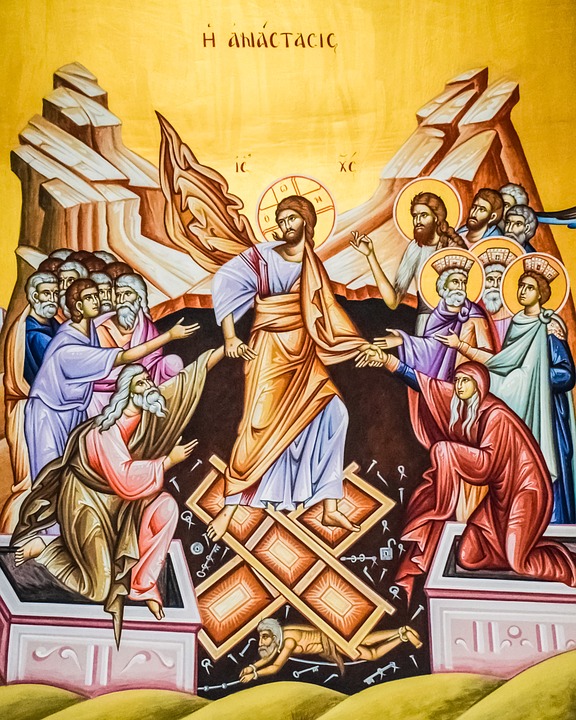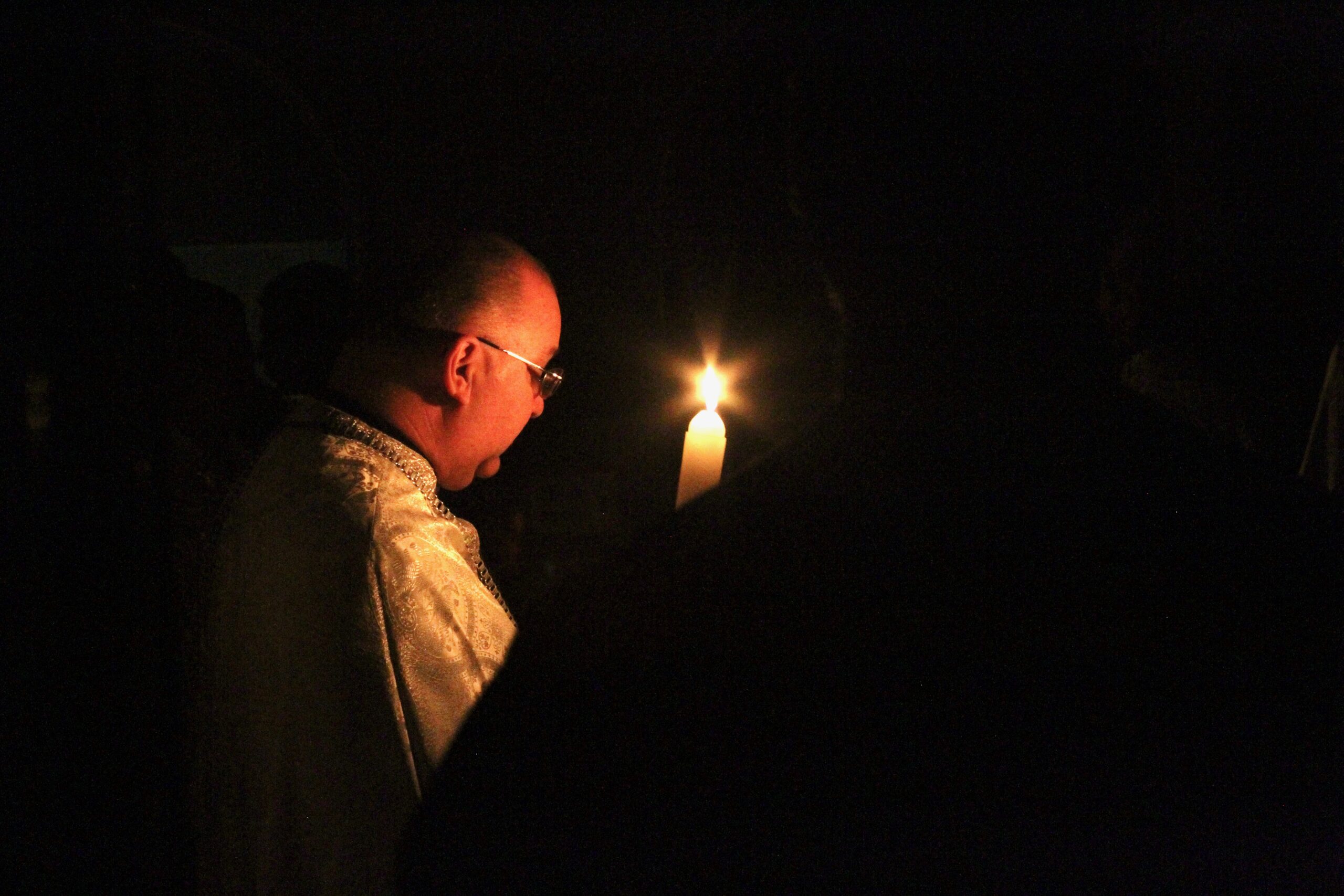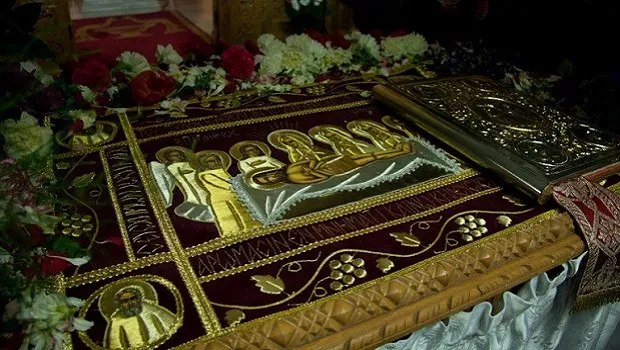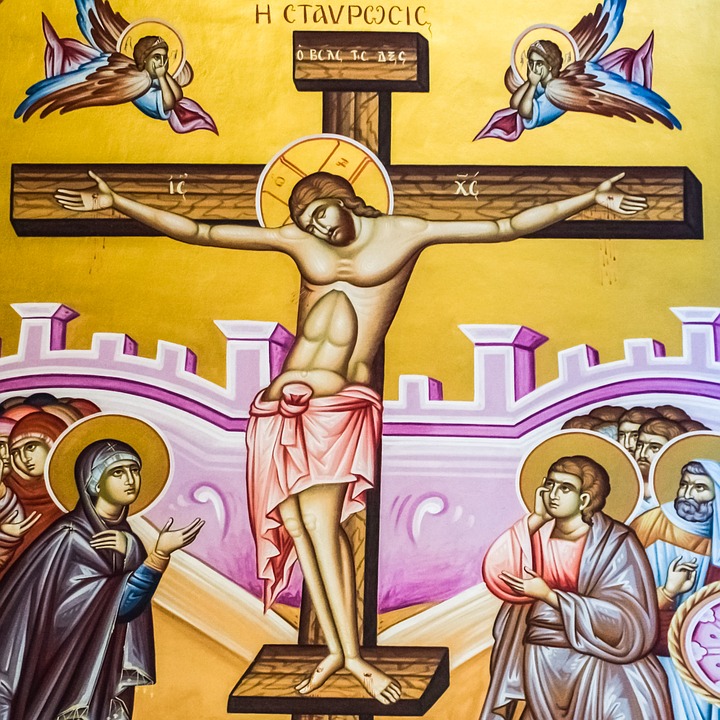Jesus answered them, “Those who are well have no need of a physician, but those who are sick; I have not come to call the righteous, but sinners to repentance.” Luke 5: 31-32
Today, on the Orthodox calendar, is called “Clean Monday,” or “Kathara Deftera” in Greek. Why a Monday? The reason is that Holy Week is not part of the forty days of Lent—it is added to it. Counting today as the first day of Great Lent, Lent will end on a Friday (this year, Friday, April 10), and Holy Week will commence on Saturday, April 11, the Saturday of Lazarus. Pascha is April 19.
Why no ashes for us Orthodox? I’m not discussing this is in an elitist way or in a way that is critical of our Christian brethren who have the practice of spreading ashes on their heads to mark the beginning of Great Lent. The tradition of the ashes has to do with sorrow over sins, and marking ourselves as sinners. The tradition of Clean Monday is that while we acknowledge our sinfulness, the theme of the day is the need for spiritual cleanliness. Many churches, including the parish I serve, offer Holy Unction on Clean Monday. There will be a mark on the heads of parishioners but it will be with oil, and will be invisible to others. This indelible mark will remind each of us that we need repentance, we need to make ourselves clean. We are anointed for healing of soul and body, not as punishment for sin.
Many people associate Great Lent strictly with fasting, in other words with deprivation of food. While fasting is part of Great Lent, Great Lent is not only about deprivation. It is about discipline and spiritual growth. The discipline to stay away from certain kinds of food will train our minds to also stay away from certain kinds of behaviors. If we tame the thing we want the most often, food, we can tame other things that we want—greed, power, ego, lust, control, anger, etc.
Lent is a time to look at our relationship with God. Does our life reflect loyalty and closeness to God our Father, or have we squandered our faith and His gifts to us in profligate living, becoming like the Prodigal Son. Lent is also a time to look at our relationship with one another. Do we love our neighbor as ourselves? Are we concerned with his welfare—with feed, clothing, visiting and helping him?
The Lenten services provide both instruction and inspiration. The Great Compline emphasizes stillness. This service is quiet and sedate. Most of the service is the reading of Psalms of repentance. The Pre-Sanctified Liturgy provides us the opportunity to receive Christ through Holy Communion in the middle of the week, as a way to strengthen and support us in our time of fasting. The Salutations to the Virgin Mary each Friday is a devotional to the Mother of God, who serves as the example par excellence of who God has called each of us to be. And of course, each Sunday provides us with the opportunity to hear the Divine Liturgy of St. Basil the Great. Even more important than giving up food, we should each give up some time each week to attend additional worship services.
Rather than a time of deprivation, let us each use the Great Lent as a time of transformation. Rather than giving up things that we can’t wait to get back after Pascha, let’s instead consider making small improvements to our spiritual life and making those permanent. This way, after the 49 days of Great Lent and Holy Week, we have transformed ourselves in some way into more committed and focused Christians, rather than tired ourselves out anxiously awaiting to get back things we’ve given up.
Great Lent provides a great opportunity to take stock of our Christian journey. Another year has passed for everyone. We are all another year closer to our date before the Awesome Judgment Seat of Christ. Are we on the path to salvation or condemnation? Rather than feeling nervous or anxious, I choose (and I hope you will as well) to feel exhilarated. I hope that you will be motivated to make some small changes as you examine yourself inwardly. I hope that you will set some goals for where you want to be in 49 days. If anything, make this time a forty-nine-day journey to a better you, a person with a better understanding or your purpose and a better understanding of Christ. Change a few habits and make those permanent lifestyle changes. So that you are reaping the rewards long after the journey has ended.
Going back to the Bible verse for today, we are all spiritually ill in some way. We have to recognize our need for healing in order to be healed. So, let us come to the Lord, the Physician and Healer of our souls and bodies, let us come to Him in repentance, and in admission of our sins and our hurts, so that by His Grace, we can be healed of them.
As for the beginning of Great Lent, resolve to take each day one step at a time. Focus today, be disciplined today, pray today. Put 49 days together and you’ll be well on your way to a new spiritual you.
The end draws near, O Soul, the end draws near, and you do not tremble, nor prepare, the time grows short, rise up, the Judge is close at the gates, as a dream, as a flower, life’s time flows away, why toss we about without aim? (From the Penitential Canon of St. Andrew)
Lord of the Powers, be with us. For in times of distress, we have no other help but You, Lord of the Powers, have mercy on us. (From the Great Compline Service)
Kali Sarakosti! A Blessed forty days! May the journey to the Cross and Resurrection of Christ fill you with motivation, purpose, discipline, hope and ultimately joy!



